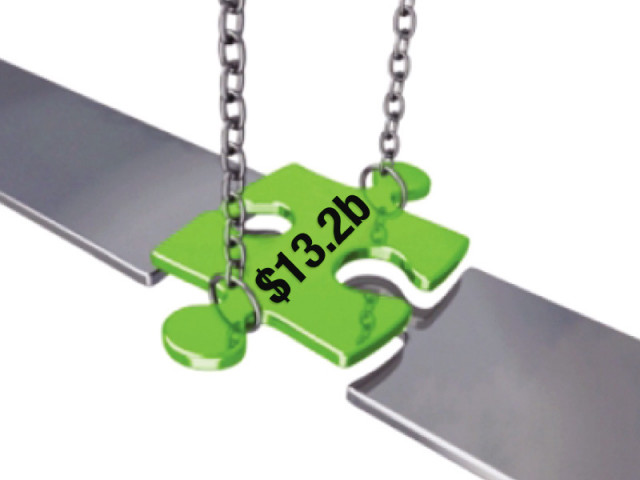Balance of trade: Gap between exports and imports narrows
Trade deficit shrinks 10% in July-February 2012-13.

Trade deficit shrinks 10% in July-February 2012-13. CREATIVE COMMONS
The trade deficit contracted 10% to $13.26 billion in the first eight months of the current fiscal year on the back of healthy growth in exports and a continuous decline in imports.
Compared to the country’s exports worth $15.9 billion in July-February 2012-13, the import bill stood at $29.1 billion, according to figures released by the Pakistan Bureau of Statistics here on Tuesday.
This resulted in trade deficit – imports exceeding exports – of $13.2 billion, but it was 10.1% lower than the trade gap of $14.7 billion in the corresponding period of the previous fiscal year.
In July-February of the current fiscal year, exports grew 5% or $756 million than the previous year. On the other hand, imports dropped 2.4% or $719 million compared to a year earlier.
As a developing nation, a reasonable growth in trade deficit is considered a reflection of a growing economy. But despite deterioration in international trade, shrinking foreign loans and plunging investments, there seems to be no urgency in relevant quarters to take required policy actions.
Over the last five years, foreign investment has decreased dramatically. In 2008, foreign investment stood at $5.5 billion, which has plunged to just $684 million in the first half of the current fiscal year.

Similarly, inflows of loans are much lower than the amount being paid to retire principal loans and make interest payments.
In February alone, the trade figures depicted a somewhat depressing trend as both exports and imports contracted and trade deficit widened 6.6% over the same month of previous year.
In the month, exports dropped 8.7% year-on-year as goods worth $1.84 billion were shipped, $175 million less than exports made in February 2012, according to the PBS. Imports shrank 2.3% in the previous month to $3.4 billion, $79 million lower than the import bill in February last year. As a result, the trade gap increased 6.6% to $1.55 billion over a year ago.
The Asian Development Bank has cautioned Pakistan that the country immediately needs a $9 billion relief package from the International Monetary Fund to avert a balance of payments crisis, which is already setting in.
However, economic managers insist that they have a substantial foreign exchange cushion that can finance three months of imports, an assessment made without taking into account forward contracts where the State Bank of Pakistan has pledged over $2 billion.
On month-on-month basis, exports and imports slowed down at almost the same pace in February over January. Exports dipped 9.3% while imports fell 10%, with the deficit narrowing by 11%.
Published in The Express Tribune, March 13th, 2013.
Like Business on Facebook to stay informed and join in the conversation.



















COMMENTS
Comments are moderated and generally will be posted if they are on-topic and not abusive.
For more information, please see our Comments FAQ